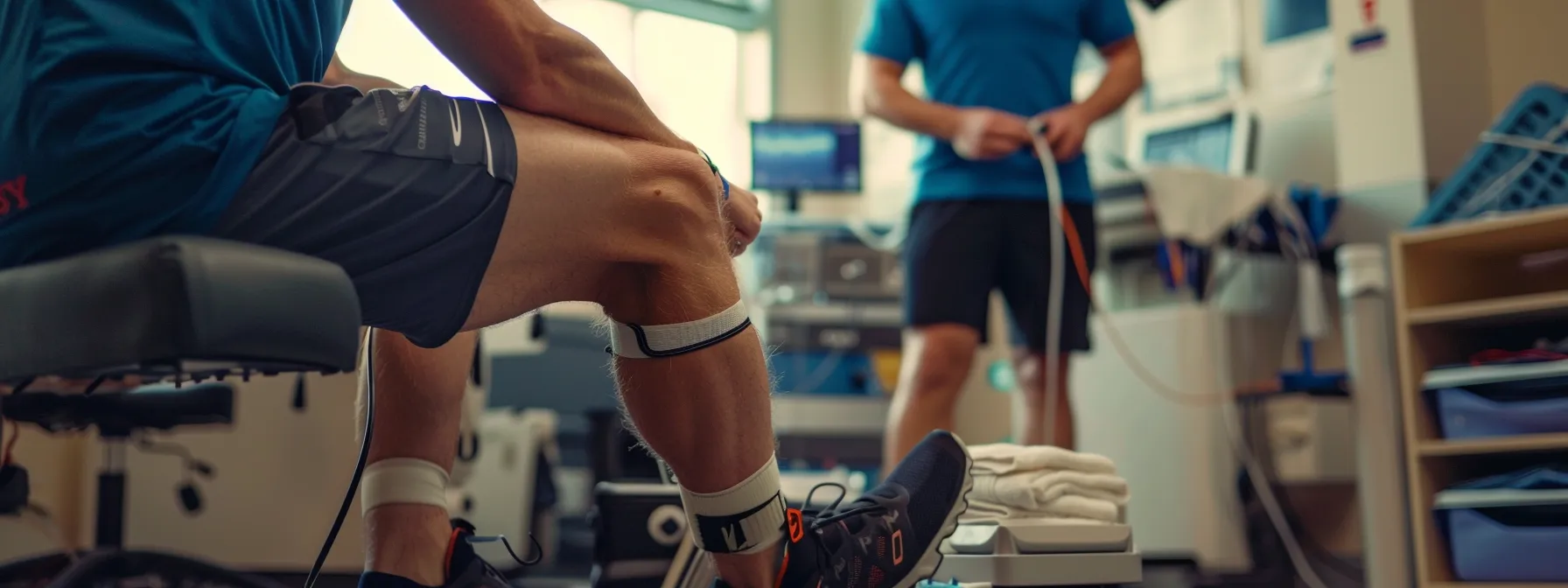Sports injuries can happen to anyone, whether during a game or while training. In Cochrane, common injuries like stress fractures and concussions can disrupt an active lifestyle. This comprehensive guide will explore how to recognize these injuries, the immediate actions to take, and the chiropractic services available to aid recovery. By understanding treatment options and developing a personalized rehabilitation plan, readers can effectively address their injuries and prevent future occurrences. Engaging with this content will empower individuals to take control of their health and return to their favorite activities with confidence.
Recognizing Common Sports Injuries in Cochrane

Local athletes in Cochrane often face common sports injuries, including strains and joint dislocations. Understanding regional risk factors can help identify these injuries early. Recognizing warning signs, such as persistent neck pain, is crucial for timely intervention. Knowing when to consult a family doctor or seek physical therapy or chiropractic services can significantly impact recovery and return to activity.
Discovering Frequent Injuries Among Local Athletes
Local athletes in Cochrane frequently encounter injuries related to soft tissue, particularly in the hip and Achilles tendon areas. Strains and tears in these tendons can lead to significant discomfort and may require orthopedic surgery if not addressed promptly. Understanding these common injuries allows athletes to seek timely treatment, such as physical therapy, which can facilitate recovery and help them return to their active lifestyles more effectively.
Understanding Regional Risk Factors Affecting Athletes
Understanding regional risk factors affecting athletes in Cochrane is essential for preventing injuries such as anterior cruciate ligament (ACL) sprains and tendinopathy. The local climate and terrain can contribute to conditions like tennis elbow, particularly among those engaged in repetitive sports activities. By recognizing these risks, athletes can take proactive measures, such as engaging in proper rehab techniques and strength training, to minimize their chances of injury and maintain their active lifestyles.
Identifying Warning Signs of Serious Injuries
Identifying warning signs of serious injuries is crucial for athletes in Cochrane. Symptoms such as severe pain, swelling, or instability in a joint may indicate ligament damage that could require surgery if not treated promptly. Seeking immediate therapy at a specialized clinic can help assess the injury and determine the best course of action, ensuring a quicker recovery and a return to active lifestyles.
Knowing When to Consult a Healthcare Professional
Knowing when to consult a healthcare professional is vital for athletes in Cochrane experiencing symptoms like persistent neck pain or low back pain. If an athlete notices a significant decrease in their range of motion or experiences discomfort that interferes with daily activities, seeking professional advice is essential. Early intervention can lead to more effective treatment options, ensuring a quicker recovery and a return to active lifestyles in Alberta.
Taking Immediate Action After an Injury

Taking immediate action after an injury is crucial for effective recovery. This section will cover the RICE method for managing injuries like a rotator cuff tear, safe home remedies for musclepain relief, and the importance of timely intervention for conditions such as anterior cruciate ligamentinjury. Understanding these strategies can significantly enhance recovery outcomes and overall health.
Applying the RICE Method Effectively
Applying the RICE method—Rest, Ice, Compression, and Elevation—effectively is essential for managing sports injuries, particularly in the elbow and other joints. This approach helps reduce swelling and pain, minimizing the risk of further injury. For optimal pain management, athletes should rest the affected area, apply ice for 15-20 minutes every few hours, use compression bandages, and elevate the joint above heart level. Incorporating manual therapy after the initial recovery phase can further enhance healing and restore function, allowing athletes to return to their active lifestyles in Cochrane more swiftly.
Utilizing Safe Home Remedies for Pain Relief
Utilizing safe home remedies for pain relief can be an effective first step for individuals dealing with sports injuries, such as shoulder impingement syndrome or bursitis. Simple techniques like applying heat or cold packs can alleviate discomfort and reduce inflammation, particularly for conditions like back pain. Additionally, gentle stretching and over-the-counter pain relievers can provide further relief, allowing athletes to manage their symptoms while awaiting professional treatment.
Importance of Timely Intervention for Recovery
Timely intervention is critical for effective recovery from sports injuries, particularly for conditions affecting the knee. When a patient experiences an injury, such as a ligament tear, seeking immediate care from a physician can facilitate proper assessment and treatment. Utilizing a splint to stabilize the injured area can promote healing and prevent further damage, ensuring that athletes can return to their active lifestyles in Cochrane as quickly and safely as possible.
Exploring Treatment Options Available in Cochrane

In Cochrane, athletes have access to a variety of treatment options for sports injuries, including visiting local sports medicine clinics for comprehensive physical examinations. Physiotherapy services play a crucial role in recovery, especially for conditions like achilles tendon rupture. In some cases, surgical options may be necessary, while alternative therapies can also support healing. Each of these approaches offers valuable insights into effective recovery strategies.
Visiting Local Sports Medicine Clinics
Visiting local sports medicine clinics in Cochrane provides athletes with specialized care for various injuries, including rotator cuff issues and ankle sprains. These clinics offer comprehensive rehabilitation programs tailored to individual needs, addressing chronic pain and promoting tissuehealing. By consulting experienced professionals, athletes can receive targeted treatment plans that enhance recovery and support a swift return to their active lifestyles.
Benefiting From Physiotherapy Services
Physiotherapy services in Cochrane play a vital role in the recovery and rehabilitation of sports injuries, particularly for conditions like shoulder syndromes and inflammation. Through techniques such as spinal manipulation, physiotherapists can help restore mobility and alleviate pain, enabling athletes to regain their strength and function. Additionally, these services emphasize injury prevention strategies, equipping individuals with the knowledge and exercises needed to avoid future injuries and maintain an active lifestyle.
Considering Surgical Options When Necessary
Considering surgical options becomes essential for athletes in Cochrane dealing with severe soft tissueinjuries that do not respond to conservative treatments. Conditions such as significant ligament tears or chronic tendoninjuries may require surgical intervention to restore function and alleviate pain. Consulting with a healthcare professional specializing in osteopathy can provide valuable insights into whether surgery is necessary, ensuring athletes receive the most effective treatment tailored to their specific needs.
Trying Alternative Therapies for Recovery
Trying alternative therapies for recovery can be an effective complement to traditional treatments for sports injuries in Cochrane. Techniques such as acupuncture, massage therapy, and fascial stretch therapy have shown promise in alleviating pain and promoting healing. Athletes seeking to enhance their recovery process may find that these therapies not only reduce discomfort but also improve overall mobility, allowing them to return to their active lifestyles more quickly.
Developing a Personalized Rehabilitation Plan

Developing a personalized rehabilitation plan is essential for athletes recovering from sports injuries in Cochrane. Crafting effective rehabilitation programs tailored to individual needs can enhance recovery outcomes. Incorporating nutrition to support healing plays a vital role, while addressing mental well-being during recovery ensures a holistic approach. Each of these elements contributes significantly to a successful return to an active lifestyle.
Crafting Effective Rehabilitation Programs
Crafting effective rehabilitation programs for athletes recovering from sports injuries in Cochrane involves a thorough assessment of individual needs and goals. Each program should incorporate specific exercises that target the injured area while also focusing on overall strength and flexibility. By integrating techniques such as manual therapy and tailored exercise regimens, healthcare professionals can enhance recovery outcomes and help athletes return to their active lifestyles more efficiently.
Incorporating Nutrition to Support Healing
Incorporating nutrition into a personalized rehabilitation plan is vital for athletes recovering from sports injuries in Cochrane. A diet rich in protein, vitamins, and minerals can significantly enhance the healing process, as these nutrients support tissue repair and reduce inflammation. For instance, including foods high in omega-3 fatty acids, such as salmon and walnuts, can help manage pain and promote recovery, allowing athletes to return to their active lifestyles more effectively.
Addressing Mental Well-Being During Recovery
Addressing mental well-being during recovery is a crucial aspect of developing a personalized rehabilitation plan for athletes in Cochrane. Emotional support and mental resilience can significantly influence recovery outcomes, as athletes often face frustration and anxiety related to their injuries. Incorporating strategies such as mindfulness practices, counseling, or support groups can help individuals manage stress and maintain a positive outlook, ultimately facilitating a smoother return to their active lifestyles.
Implementing Strategies to Prevent Future Injuries

Implementing strategies to prevent future injuries is essential for athletes in Cochrane. Adopting training techniques that enhance safety can significantly reduce the risk of injuries. Selecting proper equipment for protection ensures athletes are safeguarded during activities. Additionally, scheduling regular health assessments allows for early detection of potential issues, promoting long-term health and performance.
Adopting Training Techniques to Enhance Safety
Adopting training techniques that prioritize safety is essential for athletes in Cochrane to minimize the risk of injuries. Implementing proper warm-up routines, focusing on strength and flexibility exercises, and utilizing correct form during activities can significantly enhance overall safety. For instance, athletes should engage in sport-specific drills that prepare their bodies for the demands of their chosen activities, thereby reducing the likelihood of strains and sprains.
Selecting Proper Equipment for Protection
Selecting proper equipment for protection is vital for athletes in Cochrane to minimize the risk of injuries during sports activities. High-quality gear, such as helmets, knee pads, and supportive footwear, can significantly reduce the likelihood of impact-related injuries and provide necessary support to vulnerable areas. Athletes should consult with professionals to ensure their equipment fits correctly and meets safety standards, as this can enhance performance while safeguarding against potential injuries.
Scheduling Regular Health Assessments
Scheduling regular health assessments is a proactive approach for athletes in Cochrane to prevent future injuries. These assessments allow healthcare professionals to identify potential issues before they escalate, ensuring that athletes maintain optimal physical condition. By incorporating routine evaluations into their training regimen, athletes can receive personalized advice on injury prevention strategies, enhancing their overall performance and reducing the risk of setbacks.
Choosing the Right Sports Injury Specialist in Cochrane

Choosing the right sports injury specialist in Cochrane involves evaluating healthcare providers based on key criteria, such as their qualifications and experience. Athletes should ask essential questions before starting treatment to ensure they receive appropriate care. Additionally, leveraging community resources and recommendations can guide individuals in finding the best specialists to support their recovery journey.
Evaluating Healthcare Providers Based on Key Criteria
When evaluating healthcare providers for sports injury treatment in Cochrane, athletes should consider several key criteria to ensure they receive the best care. It is important to assess the provider’s qualifications, including their education, certifications, and experience in treating specific sports injuries. Additionally, athletes should seek out professionals who have a proven track record of successful outcomes and positive patient reviews, as this can provide valuable insight into the quality of care they can expect.
Asking Essential Questions Before Starting Treatment
Before starting treatment for a sports injury, athletes in Cochrane should ask essential questions to ensure they receive the best care possible. Inquiring about the specialist’s experience with specific injuries, treatment approaches, and expected recovery timelines can provide valuable insights into their qualifications. Additionally, discussing the potential for rehabilitation options and follow-up care can help athletes understand the full scope of their treatment plan, ultimately leading to a more effective recovery process.
Leveraging Community Resources and Recommendations
Leveraging community resources and recommendations is an effective strategy for athletes in Cochrane seeking the right sports injury specialist. Local sports clubs, gyms, and recreational centers often have connections to trusted healthcare providers who specialize in sports injuries. By engaging with fellow athletes and coaches, individuals can gather insights and personal experiences that guide them toward specialists known for their expertise and successful treatment outcomes.
Personalized Sports Injury Recovery Plans in Cochrane
Understanding sports injury treatment in Cochrane is essential for athletes aiming to maintain their active lifestyles. Recognizing common injuries, knowing when to seek professional help, and implementing effective recovery strategies can significantly enhance healing outcomes. By developing personalized rehabilitation plans and adopting preventive measures, athletes can minimize the risk of future injuries. This comprehensive guide empowers individuals to take charge of their health and performance, ensuring they remain active and engaged in their sports pursuits.
